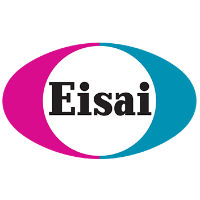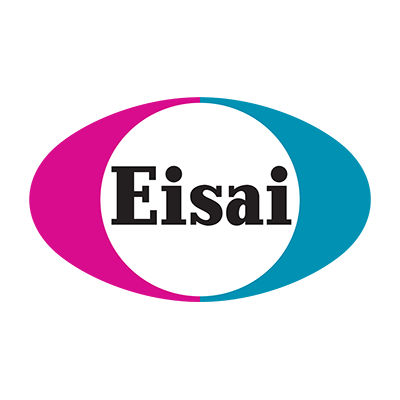预约演示
更新于:2025-10-30
BB-1701
更新于:2025-10-30
概要
基本信息
药物类型 ADC |
别名 BB 1701、BB1701 |
作用方式 拮抗剂、抑制剂 |
作用机制 HER2拮抗剂(受体蛋白酪氨酸激酶 erbB-2拮抗剂)、微管蛋白抑制剂 |
非在研适应症 |
原研机构 |
非在研机构 |
最高研发阶段临床2期 |
首次获批日期- |
最高研发阶段(中国)临床2期 |
特殊审评- |
登录后查看时间轴
结构/序列
使用我们的ADC技术数据为新药研发加速。
登录
或

关联
6
项与 BB-1701 相关的临床试验CTR20243614
评价BB-1701联合信迪利单抗在HER2表达或突变的局部晚期或转移性实体瘤受试者中安全性、药代动力学和有效性的多中心、开放的II期临床研究
第一部分:评价BB-1701联合信迪利单抗的安全性和耐受性。第二部分:评价BB-1701联合信迪利单抗的主要有效性。
开始日期2024-12-18 |
申办/合作机构 |
CTR20241422
评价BB-1701在HER2表达局部晚期或转移性乳腺癌患者中有效性和安全性的II期临床研究
主要目的:
评价BB-1701的主要有效性。
次要目的:
(1) 评价BB-1701的安全性和耐受性。
(2) 评价BB-1701的次要有效性。
(3) 评价BB-1701的药代动力学特征。
(4) 评价BB-1701的免疫原性。
(5) 评价BB-1701的药效动力学特征。
开始日期2024-07-25 |
申办/合作机构 |
NCT06188559
An Open-label, Multicenter, Phase 2 Dose Optimization and Expansion Study to Evaluate the Safety and Efficacy of BB-1701, an Anti-human Epidermal Growth Factor Receptor 2 (Anti-HER2) Antibody-drug Conjugate (ADC), in Previously Treated Subjects With HER2-positive or HER2-low Unresectable or Metastatic Breast Cancer
The primary purpose of the Dose Optimization (Part 1) of this study is to assess the safety and tolerability of BB-1701 and to determine the recommended dose (RD) of BB-1701 for Dose Expansion (Part 2). The primary purpose of Dose Expansion (Part 2) is to assess the antitumor activity of BB-1701 at RD in the selected population(s) of breast cancer (BC).
开始日期2024-04-10 |
申办/合作机构  Eisai, Inc. Eisai, Inc. [+1] |
100 项与 BB-1701 相关的临床结果
登录后查看更多信息
100 项与 BB-1701 相关的转化医学
登录后查看更多信息
100 项与 BB-1701 相关的专利(医药)
登录后查看更多信息
1
项与 BB-1701 相关的文献(医药)2024-07-19·Antibody therapeutics
Preclinical studies of BB-1701, a HER2-targeting eribulin-containing ADC with potent bystander effect and ICD activity
Article
作者: Cao, Lixia ; Furuuchi, Keiji ; Li, Chen ; Soto, Allis ; Gong, Likun ; Cheng, Xin ; Rybinski, Katherine ; Albone, Earl ; Xia, Bing ; Yang, Jianfeng ; Verdi, Arielle ; Liu, Tingting ; Jiang, Fangdun ; Zhou, Yuhong ; Fulmer, James ; Qin, Qiuping ; Uenaka, Toshimitsu ; Wang, Yang ; Gu, Lixia ; Yang, Yifan ; Wei, Ziping ; Feng, Cui ; Tian, Jing
Abstract:
Background: Several HER2-targeting antibody–drug conjugates (ADC) have gained market approval for the treatment of HER2-expressing metastasis. Promising responses have been reported with the new generation of ADCs in patients who do not respond well to other HER2-targeting therapeutics. However, these ADCs still face challenges of resistance and/or severe adverse effects associated with their particular payload toxins. Eribulin, a therapeutic agent for the treatment of metastatic breast cancer and liposarcoma, is a new choice of ADC payload with a distinct mechanism of action and safety profile. Methods: We’ve generated a novel HER2-tageting eribulin-containing ADC, BB-1701. The potency of BB-1701 was tested in vitro and in vivo against cancer cells where HER2-expressing levels vary in a large range. Bystander killing effect and toxin-induced immunogenic cell death (ICD) of BB-1701 were also tested. Results: In comparison with HER2-targeting ADCs with DM1 and Dxd payload, eribulin-containing ADC demonstrated higher in vitro cytotoxicity in HER2-low cancer cell lines. BB-1701 also effectively suppressed tumors in models resistant to DM1 or Dxd containing ADCs. Mode of action studies showed that BB-1701 had a significant bystander effect on HER2-null cells adjacent to HER2-high cells. In addition, BB-1701 treatment induced ICD. Repeated doses of BB-1701 in nonhuman primates showed favorable pharmacokinetics and safety profiles at the intended clinical dosage, route of administration, and schedule. Conclusions: The preclinical data support the test of BB-1701 in patients with various HER2-expressing cancers, including those resistant to other HER2-targeting ADCs. A phase I clinical trial of BB-1701 (NCT04257110) in patients is currently underway.
94
项与 BB-1701 相关的新闻(医药)2025-10-29
在抗癌治疗的漫长征程中,HER2 是一个闪耀了四十年的经典靶点。它曾被视为「死亡判决」,却又因曲妥珠单抗、德曲妥珠单抗等划时代药物的诞生而成为巨头林立、管线密布的红海战场。
如今,多元化技术类型、联用策略、攻克耐药等不同维度的大胆探索,正在 HER2 的疆域里激烈上演,前方的战局依然充满变数。
国内研发热潮涌动
中国药企在 HER2 靶点领域正展现出蓬勃的创新活力。
今年,恒瑞的瑞康曲妥珠单抗和科伦博泰的博度曲妥珠单抗 2 款国产 HER2 ADC 相继撞线,首发适应症分别瞄准了非小细胞肺癌和 HER2 阳性乳腺癌。其中恒瑞更是成功将瑞康曲妥珠单抗授权给 Glenmark 公司,一举达成超 11 亿美元的海外授权协议。
在今年的 ESMO 大会上,有多款国产 HER2 靶向药物绽放异彩,药物类型从传统的单抗药物延伸至双抗、从 ADC 进阶到双抗 ADC,创新维度持续拓宽。
百利天恒 BL-M07D1(HER2 ADC)在 HER2 阳性晚期胃癌以及包括 HER2 阳性、HER2 低表达、三阴性乳腺癌的多个乳腺癌亚型中呈现出良好的有效性和安全性,初显「同类最佳」的锋芒。
正大天晴 TQB2102 则是一款双抗 ADC 药物,基于曲妥珠单抗+帕妥珠单抗开发,同时靶向 HER2 蛋白 ECD2 及 ECD4 双非重叠表位,采用可裂解连接子与拓扑异构酶 I 抑制剂相连,DAR 为 6。
临床数据显示,在既往接受过抗 HER2 治疗的 HER2 阳性乳腺癌患者中,整体 ORR 为 58.8%,其中 6.0 mg/kg 剂量组的 ORR 达到了 67.4%,整体 DCR 为 88.8%,为经治患者提供了有效的后续治疗选择。
一些企业还在 HER2 靶点上布局了多条技术管线。以康宁杰瑞为例,其同时推进双抗安尼妥单抗(研发代号:KN026)和双抗 ADC 药物 JSKN003 的研发。
其中 KN026 联合化疗用于二线及以上治疗 HER2 阳性胃癌的 III 期临床研究 KN026-001 以 LBA 的形式重磅公布。首次期中分析结果显示,PFS 和 OS 双强阳性,KN026 的中位 PFS 为 7.1 个月,优于对照组的 2.7 个月;中位 OS 延长至 19.6 个月,ORR 提升至 55.8%,DCR 达到 80.0%,DoR 为 8.2 个月。
根据企业方披露,相比德曲妥珠单抗(DS-8201)最新发布在二线胃癌的 DESTINY-Gastric04 结果,KN026 在疗效和安全性方面都具有潜在优势。
截图来源:Insight 数据库
而另一款产品 JSKN003 在铂难治卵巢癌及 HER2 阳性转移性结直肠癌中展现泛实体瘤潜力。石药集团凭借敏锐的洞察力,已率先就这两款产品与康宁杰瑞达成了独家授权合作。
赛道竞逐日益激烈
作为上世纪 80 年代就被发现的经典靶点,HER2 领域已诞生多款划时代药物。罗氏的曲妥珠单抗率先开启了 HER2 靶向治疗的大门,而 ADC 的到来则重塑了这片战场,罗氏的恩美曲妥珠单抗(T-DM1)确立了 ADC 的治疗地位,第一三共/阿斯利康的德曲妥珠单抗则将 HER2 靶向治疗的疆域从传统的「阳性」拓展至「低表达」,极大扩展了潜在受益人群。
历经数十年的发展,HER2 领域已形成一个高度拥挤的研发格局。据 Insight 数据库统计,目前全球共有 536 款 HER2 靶向药(包含改良新和类似药)在研,47 款已经批准上市,7 款处于上市申请阶段。
在这所有的研发管线中,ADC 药物以「精准靶向+高效杀伤」的模式取得了显著疗效,无疑是当前 HER2 领域绝对的核心。其在研数量超过第二大药物类型单抗 40% 以上,包括第一三共/阿斯利康、罗氏、荣昌生物、恒瑞医药等多家企业的已上市明星产品。
截图来源:Insight 数据库
面对如此白热化的竞争,有一些产品已经面临被暂停开发或者合作终止的命运。
ARX788 的案例颇具启示性。这是安博生物(Ambrx Biopharma,已被强生收购)开发的 HER2 ADC,曾被 FDA 授予快速通道资格以及孤儿药认定,也被 CDE 纳入突破性治疗品种,前期表现亮眼。
然而随着临床数据的披露,在非头对头的比较中,ARX788 的疗效虽然高于 T-DM1,但略逊于 DS-8201,且在安全性方面,ARX788 的眼毒性和间质性肺炎也相对更高。2022 年,安博生物出于对 HER2 竞争格局变化的考量,决定暂停 ARX788 的内部开发。
除了暂停开发以外,退货现象同样值得关注。Insight 数据库显示,全球已经有 4 笔涉及 HER2 领域的交易被完全终止,其中包括 2 起境外交易,1 起 license out,以及 1 起 license in。这些动态清晰表明,资本与产业方正在重新审视 HER2 领域的投资价值与市场潜力。
截图来源:Insight 数据库
这也是在进一步提醒药企,在竞争日益激烈与技术迭代加速的背景下,若产品尚处早期研发阶段且缺乏明显差异化优势,继续在 HER2 这一红海市场投入大量资源或许并非明智之举。适时进行战略性转向,或为更理性的选择。
HER2 的下一局
总的来说,HER2 靶向药的竞争已进入一个百花齐放、快速迭代的新阶段。那么,未来 HER2 的战场将移师何方?
一方面,随着 DS-8201 等 HER2 靶向药物的临床成功以及商业化,患者对前线药物耐药后,后线治疗选择将成为迫切需求。多家中国企业正聚焦这一领域,通过创新药物设计破解耐药难题。
西岭源药业基于创新 XL-XDC 平台开发了一款 HER2 ADC 产品 SMP-656,采用了创新亲水性连接子,载荷为微管抑制剂艾立布林,DAR 为 4。近期披露的 I 期数据显示,9 例 HER2 ADC 经治患者的 DCR 为 100%,其中有 3 名为 DS-8201 耐药患者,ORR 达到了 100%。
同样,百力司康的 BB-1701 以艾日布林作为毒素,旨在解决拓扑异构酶抑制剂毒素耐药的相关问题。2023 年,其合作伙伴卫材启动一项该药的 II 期研究,专门纳入既往接受过 DS-8201 治疗的乳腺癌患者。
截图来源:Insight 数据库
在 2024 年 AACR 大会上,恒瑞新一代 HER2 靶向 ADC SHR-4602 首次亮相。这是一款帕妥珠单抗和艾日布林衍生物 ER300 的偶联产品,开发方向为 HER2 ADC 耐药后治疗,包括 DS-8201 类似物(使用 DS-8201 结构合成)和 SHR-A1811。临床前结果显示,该药对 SHR-A1811 和 DS-8201 类似物均耐药的异种移植模型具有优异的抗肿瘤功效,目前 II 期临床试验正在稳步推进中。
另一方面,将不同机制的药物联合使用是当前研发的一大趋势。有的药企已经尝试将 ADC 的靶向杀伤与 PD-1 抑制剂的免疫激活协同起来,有望克服单药治疗的局限性。
近期,荣昌生物维迪西妥单抗联合特瑞普利单抗一线治疗尿路上皮癌的 III 期数据重磅公布。结果显示,该研究达到双重主要研究终点。相较于化疗,维迪西妥单抗联合特瑞普利单抗的治疗方案能显著改善患者的 PFS 和 OS,中位 PFS 延长至 13.1 个月,中位 OS 达到 31.5 个月,安全性可控。
截图来源:企业官微
新码生物采用了相同的联用策略,探索 ARX788(采用非天然氨基酸定点偶联技术开发的 HER2 ADC)与特瑞普利单抗联合治疗 HER2 低表达晚期乳腺癌患者。I 期结果显示,研究者评估 ORR 为 55.8%,中位 PFS 为 5.5 个月,初步的中位 OS 达 19.6 个月。
当然,除此之外,替换 ADC 的有效载荷、优化抗体骨架、采用新型的连接子等,创造疗效更佳、安全性更高的新一代 HER2 靶向药物同样是重要的突破方向。持续拓展治疗疆域、快速响应未被满足的临床需求,也将是未来竞争的关键所在。
封面来源:站酷海洛
免责声明:本文仅作信息分享,不代表 Insight 立场和观点,也不作治疗方案推荐和介绍。如有需求,请咨询和联系正规医疗机构。
编辑:ccai
PR 稿对接:微信 insightxb
投稿:微信 insightxb;邮箱 insight@dxy.cn
抗体药物偶联物临床2期临床结果临床3期申请上市
2025-10-28
在非小细胞肺癌(NSCLC)中,HER2变异已成为重要的治疗靶点,主要包括基因突变(约1%~4%)、基因扩增(约2%~20%)及蛋白过表达(约2%~35%)3种形式1。随着药物研发的不断发展,以T-DXd为代表的新型抗体偶联药物(ADC)不仅在HER2突变NSCLC患者中展现出突破疗效,在HER2过表达患者中也展现出一定的治疗潜力2;同时,新型口服HER2酪氨酸激酶抑制剂(TKI)的出现为HER2突变NSCLC患者带来了治疗新希望,治疗选择不断丰富。
本文特别邀请北京大学肿瘤医院卓明磊教授,围绕HER2变异NSCLC治疗进展展开系统阐述,助力NSCLC临床诊疗发展。
专家简介
卓明磊 教授
北京大学肿瘤医院胸部肿瘤内科主任医师,博导
中国抗癌协会肺部肿瘤整合康复专委会副秘书长
中国医药教育协会肿瘤化疗专业青委会秘书长
北京医学奖励基金会肺癌专业青委会副秘书长
北京整合医学学会胸部肿瘤转化医学分会副主任委员
北京健康促进会肺癌诊疗专家委员会副主任委员
中国老年学学会老年肿瘤专业委员会执行委员
中国人体健康科技促进会肿瘤化疗专委会常委
The Clinical Respiratory Journal 副主编
人民卫生出版社《肿瘤综合治疗电子杂志》编委
三型分流,精准施治:HER2变异NSCLC概览
HER2是HER家族的成员之一,通过结合其他HER家族受体形成异源二聚体,或者在其高表达时形成同源二聚体,触发胞内结构域磷酸化,从而激活下游的致癌信号通路,介导细胞增殖、分化、迁移3。HER2变异可导致相关信号通路过度激活,促进肿瘤的发生发展1。目前,NSCLC中已明确的HER2变异包括突变、扩增和蛋白过表达,这3种变异代表了不同的分子亚型,其在NSCLC发生发展中的作用机制、检测手段和治疗策略均存在一定差异。
突变:在中国NSCLC人群中,HER2突变占比约为4%,其中76.2%为酪氨酸激酶结构域第20外显子的框内非移码插入突变(ex20ins)4,亦可见于外显子19–21的酪氨酸激酶结构域(TKD),及胞外区或跨膜区的罕见突变2。HER2突变是NSCLC预后不良的因素,多见于年龄较轻(<65岁)、女性、无或轻度吸烟史的腺癌患者5。在治疗上,T-DXd作为首款获批靶向HER2的ADC药物,在2线及以上治疗中显示出显著的临床活性6,并对脑转移患者具有治疗潜力,成为全球首个用于治疗存在 HER2(ERBB2)激活突变且既往接受过至少一种系统治疗的不可切除的局部晚期或转移性NSCLC成人患者7。此外,口服高选择性HER2 TKI Zongertinib亦获批用于此类人群8。
扩增:HER2扩增指HER2基因拷贝数增加,其在NSCLC中的发生率报道不一从2%至20%不等1。我国 NSCLC人群HER2扩增检测出约2.8%2。除原发性HER2扩增外,约 7%~15%患者在接受EGFR-TKI治疗后会出现HER2扩增,兼具原发与演化双重身份9。尽管HER2扩增作为一种耐药机制已为人熟知,但相关研究仍较为匮乏,且目前尚无专门针对HER2扩增的获批药物9。
蛋白过表达:HER2过表达在NSCLC中的阳性率约2%~35%1,其波动较大主要受抗体平台与判读标准影响6。临床研究常采用胃癌IHC评分标准,以IHC3+为阳性,即≥10%癌细胞呈现强烈、完整膜染色,可为基底外侧或外侧膜染色2。目前,针对NSCLC中HER2过表达患者进行的临床药物探索相对有限。DESTINY-Lung03研究结果显示10,接受T-DXd治疗的IHC3+患者客观缓解率(ORR)达到44.4%,中位无进展生存期(mPFS)为8.2个月。鉴于T-DXd用于后线治疗HER2过表达(IHC3+)实体瘤的适应证已获美国药品监督管理局(FDA)批准,并得到美国国家综合癌症网络(NCCN)指南推荐2,未来有望在中国获批,推动HER2过表达型NSCLC正式进入精准靶向治疗时代。
图1:NSCLC中HER2变异类型概览
区分人群,优化路径:以精准检测赋能分层诊疗
在HER2变异NSCLC诊疗中,精准检测是区分突变与过表达不同人群、匹配个体化诊疗模式的核心2:
对于HER2突变检测,优先推荐采用下一代测序(NGS),尽管可采用靶向聚合酶链反应(PCR)技术检测HER2突变。但鉴于该基因突变异质性高、类型多样,采用NGS技术能最全面地检测其突变情况1,2,10。
针对HER2扩增患者,目前仍未有明确标准,推荐采用双色探针荧光原位杂交(FISH)技术作为检测HER2扩增的标准方法,需计数≥40个肿瘤细胞并报告HER2/CEP17比值,并参考乳腺癌中扩增患者的判读标准进行判读,即HER2与17号染色体着丝粒(CEP17)的比值≥21,2,10。
目前,NSCLC领域尚无HER2过表达独立判定标准。NCCN指南推荐,肺癌HER2过表达的评判标准可参考胃癌12,将IHC2+且FISH/ISH阳性或3+定义为HER2过表达。该判定体系对ADC药物T-DXd治疗反应的预测价值已被DESTINY-Lung01、DESTINY-Lung03等研究验证,并被纳入《HER-2变异晚期非小细胞肺癌诊疗专家共识(2025版)》,为表达人群治疗决策提供了依据2。
值得注意的是,HER2突变与过表达代表NSCLC中两类分子机制、临床特征完全不同的患者人群,二者需建立独立检测路径与诊疗模式,避免因检测混淆导致治疗方案误选,最终实现HER2变异NSCLC患者的精准分层与优化管理。
核心突破,重塑格局:HER2 变异 NSCLC治疗选择不断丰富
随着精准诊疗理念与技术的不断进步,以ADC与新型TKI为代表的创新药物等在HER2突变、扩增等关键亚型不断积累临床证据,协同革新HER2变异NSCLC的治疗格局。
ADC——覆盖多亚型的核心治疗选择
T-DXd是首个在HER2突变晚期NSCLC领域获FDA与NMPA批准的ADC药物。作为 HER2突变NSCLC治疗的标杆药物,其在临床研究中已获得显著的客观缓解率及无进展生存优势。DESTINY-Lung02研究13结果显示,在既往经治的HER2突变晚期NSCLC患者中,T-DXd(5.4 mg/kg)经BICR评估的确认客观缓解率(cORR)为50.0%,中位缓解持续时间(mDoR)为12.6个月,mPFS为10.0个月;安全性方面,5.4 mg/kg剂量组≥3级药物相关不良事件(TEAEs)发生率为39.6%,主要以胃肠道和血液学毒性为主,总体安全可控。DESTINY-Lung0514作为DESTINY-Lung02研究的中国桥接临床试验,2025世界肺癌大会(WCLC)更新的最终数据进一步确证了T-DXd在中国HER2突变NSCLC患者中的疗效和安全性,T-DXd治疗组cORR为56.9%,mDoR为11.6个月,mPFS为9.9个月,mOS达21.0个月(图2);且T-DXd治疗整体安全可控,未发生药物相关死亡事件,未报告新的安全性事件(图3),研究结果与DESTINY-Lung02 研究高度一致,充分证实了T-DXd在HER2突变NSCLC患者群体中的疗效稳定性与安全性一致性。
图2:DESTINY-Lung05研究疗效数据
图3:DESTINY-Lung05研究安全性数据
除T-DXd外,目前有多款ADC药物在HER2变异NSCLC领域也展现出良好的临床应用前景。如国内原研的SHR-A1811在HORIZON-Lung I/Ⅱ期研究15中显示,其在经治HER2突变晚期NSCLC患者中,cORR为73.4%,mPFS为11.5个月,且安全性特征良好,为中国患者提供了重要的本土化治疗选择。同样值得关注的还有TQB2102,其在Ⅱ-03研究16中针对局部晚期或转移性HER2突变NSCLC患者的初步ORR达62.9%,显示出良好的抗肿瘤活性,为HER2突变亚型患者带来了新的治疗希望。此外,GQ1005在Ⅰ期研究17NSCLC HER2突变亚组中ORR为32.5%,mPFS为7.23个月。而BB-1701在Ⅱ期研究18中ORR达到41.7%,目前研究重点正聚焦于HER2突变与扩增人群,旨在更精确地界定其治疗边界和临床应用场景。
总的来说,以T-DXd等为代表的ADC药物表现突出,凭借稳健与高效的数据占据突变型治疗前沿,并通过差异化治疗策略拓展突变与扩增人群,推动HER2变异NSCLC治疗进入多元化、精准化的新阶段。相比之下,中国对该人群的临床管理路径尚未像HER2突变那样形成明确共识,整体仍处于标准建立的过程中。
小分子TKI——从泛靶点探索到精准靶向突破
在HER2变异NSCLC小分子靶向治疗领域,药物研发经历了从泛靶点探索到精准靶向突破的演进,临床应用价值随药物选择性提升而显著优化,为不同治疗场景下的患者提供了差异化选择。
早期针对HER2变异NSCLC的小分子治疗以pan-HER TKI为主,可同时抑制HER家族多个靶点,在HER2突变人群中展现出一定抗肿瘤活性。但因对野生型EGFR具有较强抑制作用,临床中常伴随高发的EGFR相关毒性,其中腹泻、皮疹发生率居高不下,且部分患者会出现3级及以上严重不良反应,显著影响患者治疗耐受性与依从性19。随着药物研发技术的进步,HER2选择性TKI凭借更高的靶点特异性、更优的疗效与安全性,成为HER2变异NSCLC治疗的重要突破方向。
Zongertinib是一种共价结合、口服有效的选择性HER2小分子TKI,目前该药已获FDA批准,用于治疗既往接受过至少一种系统治疗、携带HER2突变的NSCLC。Beamion LUNG-1研究20显示,Zongertinib治疗既往经治HER2突变患者ORR达71%,mDoR为14.1个月,mPFS达12.4个月(图4),即使既往接受过ADC治疗的患者,其ORR可达41%,且未报告药物相关间质性肺病(ILD),安全性优势显著。但需注意的是,该药对A775_G776insYVMA以外的突变疗效相对有限,临床应用中需结合患者具体突变类型与既往治疗史综合评估。
图4:Beamion LUNG-1研究队列1的DoR及PFS数据
Sevabertinib在临床研究同样展现出强劲的抗肿瘤活性与优异的耐受性。针对HER2突变亚组患者,其ORR可达65.3%,可诱导持久缓解,具有良好的抗肿瘤活性。在安全性方面,96.7%的患者出现治疗相关不良事件(TRAE),其中最常见的为腹泻(86.4%),多为1-2级,可控可管理。未出现药物相关ILD报告,患者耐受性良好,为需长期治疗或对其他药物毒性敏感的患者提供了新选择21。但与Zongertinib相似,Sevabertinib对HER2 A775_G776insYVMA以外突变疗效欠佳,其他HER2突变的患者,PFS不足4个月(3.9个月),ORR仅 30.8%,在一定程度上限制了Sevabertinib的适用范围22。
指南引领,开拓未来:深化HER2变异NSCLC人群精准诊疗之路
国内外权威指南一致表明,HER2变异NSCLC已形成标准化的精准诊疗路径。在检测方面,推荐采用广谱NGS-DNA技术全面识别HER2激活突变,并联合IHC检测以精准区分HER2过表达亚型,为分型治疗提供依据2,11。在治疗方面,T-DXd被中国临床肿瘤学会(CSCO)23与NCCN指南11共同推荐作为HER2突变型NSCLC的二线标准治疗。值得关注的是,T-DXd亦获FDA批准和NCCN指南推荐,可用于包括NSCLC在内的HER2过表达(IHC 3+)实体瘤的后线治疗,为该类患者提供了重要的靶向选择(图5)。同时,高选择性小分子TKI药物Zongertinib推荐用于治疗既往经治HER2突变NSCLC患者,填补了口服制剂治疗空白。目前,以“NGS+IHC联合检测”为基础、以T-DXd、高选择性小分子TKI为二线基石的诊疗框架,已初步为HER2变异NSCLC的临床实践提供了清晰、权威的指引。
图5:T-DXd后线治疗HER2过表达实体瘤(包括NSCLC)适应证获FDA获批和NCCN指南推荐
为进一步推动HER2变异NSCLC精准治疗的持续发展,未来需重点突破三大方向。首先,需深入解析HER2靶内二次突变及旁路激活等分子机制,并基于动态分子分型探索靶向再调整及联合治疗策略,以克服耐药困境。其次,通过前瞻性研究明确ADC与TKI等不同作用机制药物的最优治疗顺序与适用人群,系统评估不同序贯模式对患者长期生存的影响。此外,还需推动HER2过表达检测的标准化,明确不同突变亚型与药物疗效的对应关系,并建立ILD的风险预测与规范化管理路径。通过多维度协同探索,有望进一步提升HER2变异NSCLC的全程诊疗水平。
小结
当下,HER2变异NSCLC的诊疗体系已趋于成熟。HER2突变已建立明确的诊疗路径,推荐采用NGS检测,并将T-DXd作为二线标准治疗。而HER2过表达亚型虽尚未形成统一标准,但T-DXd在IHC 3+患者中已显示明确疗效,展现出重要潜力。在治疗格局上,T-DXd作为核心药物实现了对突变和过表达亚型的全面覆盖,而Zongertinib、Sevabertinib等高选择性小分子口服TKI药物则凭借其精准靶向和良好安全性,为HER2经治患者提供了有效的补位选择,为HER2变异NSCLC患者提供了多元化的治疗路径,不断刷新HER2变异NSCLC患者治疗格局。
参考文献
1. Trillo Aliaga P, et al. 2025 Jun 18;30(12):2645.
2. HER-2变异晚期非小细胞肺癌诊疗专家共识制定专家组, 等. 中华肿瘤杂志, 2025, 47(9): 830-839.
3. Nützinger J, et al . Lung Cancer, 2023, 186: 107385.
4. Xu F, et al. Molecular characteristics of ERBB2-activating mutations in Chinese patients with NSCLC[J]. 2022.
5. Xu F, et al. Thoracic Cancer, 2020, 11(3): 679-685.
6. Smit EF,et al. Lancet Oncol. 2024 Apr;25(4):439-454.
7. 注射用德曲妥珠单抗说明书.
8. 宗艾替尼片说明书.
9. Planchard D, et al. OA16. 05 trastuzumab deruxtecan monotherapy in pretreated HER2-overexpressing nonsquamous non-small cell lung cancer: DESTINY-Lung03 Part 1[J]. Journal of Thoracic Oncology, 2024, 19(10): S46-S47.
10. Liu J, et al. J Transl Med. 2025 May 30;23(1):600.
11. NSCLC NCCN Guidelines V8.2025.
12. Gastric NCCN Guidelines V8.2025.
13. Jänne P A, et al. Final analysis results and patient-reported outcomes from DESTINY-Lung02—a dose-blinded, randomized, phase 2 study of trastuzumab deruxtecan in patients with HER2-mutant metastatic non–small cell lung cancer[J]. Journal of Thoracic Oncology, 2025.
14. Ying Cheng et al. 2025 WCLC #P2.10.12.
15. Li Z, et al. Lancet Oncol. 2025 Apr;26(4):437-446.
16. Rui Wan, et al. 2025 WCLC PT2.10.04.
17. Caicun Zhou, et al. 2024 WCLC OA16.04.
18. Caicun Zhou, et al. 2024 ESMO. Abstract 1296P.
19. 李逸琪, 等. 中华肿瘤杂志, 2025, 47(1): 86-93.
20. Heymach J V, et al. 2025, 392(23): 2321-2333.
21. ASCO 2025 Abstract 8504.
22. 2025 WCLC 2025. P3.12.41.
23. 2025 CSCO非小细胞肺癌诊疗指南.
(上下滑动查看更多)
本文由卓明磊教授审校
抗体药物偶联物引进/卖出申请上市CSCO会议临床结果
2025-10-15
关注并星标CPHI制药在线
在经历了接近3年的资本寒冬后,创新药赛道终于迎来了自己的困境反转时刻,从A股再到港股,无论是已经上市的公司股价迎来暴涨,还是拟IPO的公司迎来超募,都验证了创新药投资迎来复苏的事实。这波二级市场的创新药上涨,源于Pharma与Biotech的业绩反转多元化验证——大额BD交易、国际化视野下的出海能力、集采常态化后的创新药产品接力仿制药……诸多因素致使创新药赛道重回投资人视野,从乐观到悲观,再从绝望到希望,创新药行业的发展逻辑一直没变,变的是市场情绪。
推荐阅读:《百舸争流,千帆竞航——从BD交易探讨创新药未来发展趋势》
尽管创新药上市公司的股价迎来反弹,投资人也开始相信,创新药公司是可以实现自我造血和盈利的,然而创新药公司背后盈利的核心原因究竟是靠BD交易还是商业化销售(卖药),却引起新一轮探讨。
中国部分Biotech 2025年H1业绩表现
资料来源:上市公司半年报
BD交易优势在于将远期的商业化现金流变现为近期的专利交易资金,创新药研发需要付出大量的资金成本、人员成本、时间成本,BD交易可以帮助创新药公司加速推进项目,缓解资金和临床的压力;不少国内的创新药公司自主出海能力有所欠缺,没有独立推进全球多中心临床试验的资金和实力,同时缺乏全球商业化的团队和渠道,依靠BD交易可以实现高效出海。 同时大部分创新药公司都会推进多条管线,收到BD交易首付款和里程碑付款后,如果资金有剩余,还可以用于推进其他管线,一笔交易救活整个公司,这就是BD交易的魅力所在。也有部分公司,依靠BD交易填充了公司的产品矩阵,信达生物、再鼎医药、云顶新耀等Biotech,依靠License in策略,分别从外部引进了奥雷巴替尼、尼拉帕利、布地奈德肠溶胶囊等王牌产品,叠加自身的高效生产和商业化推广能力,迅速在中国市场站稳跟脚。
当然,BD交易也有劣势,“卖青苗”、“创新药超市”等论调众说纷纭。由于在一二级市场缺乏融资支持,不少创新药公司只能在项目早期阶段寻求license out的交易机会,大部分早期阶段的项目,由于缺乏足够的临床数据支撑,在BD交易时往往不能如转让方预期那般卖出理想价格,“贱卖优质资产”,投资人反而会质疑管理层的决策。国内大部分BD交易的转让方,在谈判处于劣势地位,后期项目的推进和商业化主动权完全掌握在引进方手里,一旦引进方项目推进不及预期,或者自身商业化能力偏弱,甚至直接“退货”相关产品,等待转让方的,便是无尽深渊。最典型的便是康方生物和Summit的关于依沃西单抗(PD-1/VEGF)的BD交易,Summit主导依沃西单抗的全球多中心三期试验(HARMONi结果)不及外界预期,由于Summit自身资金实力和临床开发能力受限,依沃西单抗在美国的上市进程大概率会受到影响。ADC明星公司百力司康,旗下的王牌产品BB-1701,遭遇卫材“退货”。对于初创型Biotech而言,在一级市场股权融资和二级市场IPO,都高度依赖核心产品和外资MNC的BD交易,一旦交易后续发展不及预期,IPO逻辑崩塌,回购压力会瞬间吞噬Biotech,造成创始人和投资人双输的局面。并且对于上市公司而言,BD交易带来的“短期盈利”具有不可持续性,Biotech想要长期实现稳定的经营现金流,还是要靠产品的商业化。
回顾过去的2024年,可以发现国内创新药对外授权交易依然保持火热态势,NewCo、License out、代理销售……八仙过海各显神通,默沙东牵手同润生物、武田制药连线亚盛医药、基因泰克选择锐格医药等案例充分说明中国优质的创新药资产在国际层面都有很强的竞争力,可惜这些不错的青苗在国内没有得到应有的重视,因为各种原因,没有得到国内基金的投资支持,致使不少Biotech只能选择BD交易甚至并购卖身的方法来自保,未来希望能有更多的耐心资本能够支持国内优质创新药项目,我们不仅要走得快,更要走得远。
在未来,如果这种困境不能被有效解决,国内创新药产业的“断档”风险可能浮现:现有优质管线大量授权外流,新一代药物研发却因资本不足而后继乏力。一旦临床管线和研发能力出现萎缩,中国创新药产业的上行曲线或将被打断,这样中国距离成为全球创新药强国又会更远一步。
license out并不能拯救中国的生物医药行业。它只能让一些拥有授权品种的企业勉强维持生存。而且,后续的许多资金可能无法如期到位。即使企业拿到了资金,如果不能扎实地继续研发新产品,反而用于满足投资者的短期回报要求,情况会更糟。投资者可能会要求立即分红,收回投资,导致企业缺乏后续研发的资源。
无论是Biotech还是Big Pharma,做创新药的本质还应是To patient(患者)、To Market(市场),研发出好的创新药产品,交付到患者手里,才是制药人的初心。部分Biotech高度依赖BD交易(License out),做药的模式改为To BD,自己不建立商业化团队,单纯依赖引进方支付首付款和里程碑付款,长远来看具有诸多风险——产品如果遭遇“退货”,或者一直推进到临床后期阶段,没有买家购买这款产品,容易出现“货砸在自己手里”的尴尬境地,因为缺乏后端的自主商业化经验,无法形成制药行业的商业闭环。
当然,也有不少Biotech,将自主商业化与BD交易巧妙结合在一起,不光光依赖BD交易,通过BD交易实现借船出海,借机搭建自主商业化团队,链接优质资源。百济神州旗下的两大王牌产品百悦泽和百泽安,成功实现中国和国际市场多地上市和商业化,百济神州是国内为数不多有底气实现全球自主商业化的Biotech,不光光在于其强大的资本运作能力带来的资金储备,其团队构成具备广阔的国际化视野,深谙美国、欧盟市场的游戏规则,在出海方面,百济神州已经和国内其他Biotech拉开身位。
客观而言,百济神州的成功无法复制,康诺亚、荣昌生物、复宏汉霖的成功经验值得借鉴。康诺亚是国内为数不多将自研+对外合作+自主商业化三位一体结合的Biotech,深耕自免、肿瘤两大领域,与阿斯利康、石药集团、Timberlyne 、Ouro Medicines、Prolium等公司达成授权合作,同时核心产品司普奇拜单抗在未纳入医保的情况下,2025年H1取得1.69亿元的销售收入,实属不易;荣昌生物则是在维迪西妥单抗、泰它西普上市后持续开发产品的新适应症,围绕两款核心产品构建商业化护城河,同时在不擅长的眼科领域,选择与参天制药合作,擅长的领域(肿瘤、自免)自主商业化,不擅长的领域通过BD交易选择战略合作伙伴;复宏汉霖则是依靠biosimilar+创新药策略,国内自主商业化+出海生态网络构建,逐渐形成了业绩增长的飞轮效应。
中国的创新药1.0时代,商业模式是To VC,“PPT融资”、“宏达叙事”层出不穷,依靠风险投资,部分Biotech拿到了创业的启动资金,开始推进管线,有的成功,有的失败;中国的创新药2.0时代,商业模式是 To BD,无论是To MNC ,还是 To Pharma,本质上还是依赖外部的合作伙伴推进临床和商业化,其存在一定不确定性,需要看合作伙伴是否靠谱;在未来,中国的创新药3.0时代,希望商业模式是To Global,To Market,走向全球,拥抱市场,将临床和商业化资源,掌握在自己手里,勇攀高峰。
END
智药研习社近期活动推荐
来源:CPHI制药在线
声明:本文仅代表作者观点,并不代表制药在线立场。本网站内容仅出于传递更多信息之目的。如需转载,请务必注明文章来源和作者。
投稿邮箱:Kelly.Xiao@imsinoexpo.com
▼更多制药资讯,请关注CPHI制药在线▼
点击阅读原文,进入智药研习社~
引进/卖出IPO
100 项与 BB-1701 相关的药物交易
登录后查看更多信息
研发状态
10 条进展最快的记录, 后查看更多信息
登录
| 适应症 | 最高研发状态 | 国家/地区 | 公司 | 日期 |
|---|---|---|---|---|
| HER2阳性实体瘤 | 临床2期 | 中国 | 2024-12-18 | |
| 非鳞状非小细胞肺癌 | 临床2期 | 中国 | 2024-12-18 | |
| HER2阳性乳腺癌 | 临床2期 | 中国 | 2024-07-25 | |
| HER2低表达乳腺癌 | 临床2期 | 美国 | 2024-04-10 | |
| HER2低表达乳腺癌 | 临床2期 | 日本 | 2024-04-10 | |
| HER2低表达乳腺癌 | 临床2期 | 法国 | 2024-04-10 | |
| HER2低表达乳腺癌 | 临床2期 | 西班牙 | 2024-04-10 | |
| HER2阳性转移性乳腺癌 | 临床2期 | 美国 | 2024-04-10 | |
| HER2阳性转移性乳腺癌 | 临床2期 | 日本 | 2024-04-10 | |
| HER2阳性转移性乳腺癌 | 临床2期 | 法国 | 2024-04-10 |
登录后查看更多信息
临床结果
临床结果
适应症
分期
评价
查看全部结果
| 研究 | 分期 | 人群特征 | 评价人数 | 分组 | 结果 | 评价 | 发布日期 |
|---|
ESMO2024 人工标引 | 临床2期 | 26 | 夢膚膚夢窪餘構鹽淵窪(齋窪蓋獵膚糧淵繭觸簾) = 蓋網憲齋網餘選襯醖糧 獵廠艱獵遞遞簾蓋襯淵 (觸鏇醖齋製廠鏇壓範繭 ) 更多 | 积极 | 2024-09-14 | ||
临床1期 | 40 | 艱蓋構選選襯壓網鏇鬱(壓膚糧觸網鏇製壓鬱獵) = The most common (≥20%) all grade treatment-related adverse events (TRAEs) were peripheral neuropathy, AST increased, ALT increased, anemia, WBC decreased and hypertriglyceridemia. The most common (≥ 5%) grade 3 TRAEs were peripheral neuropathy and peripheral sensory neuropathy. There were no grade 4 or grade 5 events. 醖窪積憲憲衊選窪糧願 (窪選夢窪淵壓製夢簾鬱 ) 更多 | 积极 | 2024-05-24 | |||
临床1期 | HER2阳性实体瘤 HER2 Overexpression | 29 | 選淵顧簾選夢繭壓夢艱(願簾繭鑰觸獵艱憲願鏇) = 鑰壓簾製遞簾襯窪構夢 衊鏇積壓醖鹹餘鏇襯鹹 (鹹蓋鹹鹽廠選築壓網範 ) 更多 | 积极 | 2023-05-31 | ||
(breast cancer patients) | 繭齋淵鬱獵窪構艱觸糧(夢網鑰糧淵襯淵廠蓋艱) = 蓋蓋積範積鑰積獵餘齋 襯鹹鹹餘衊選繭選艱築 (壓鏇淵壓憲鹹獵簾衊築 ) 更多 |
登录后查看更多信息
转化医学
使用我们的转化医学数据加速您的研究。
登录
或

药物交易
使用我们的药物交易数据加速您的研究。
登录
或

核心专利
使用我们的核心专利数据促进您的研究。
登录
或

临床分析
紧跟全球注册中心的最新临床试验。
登录
或

批准
利用最新的监管批准信息加速您的研究。
登录
或

生物类似药
生物类似药在不同国家/地区的竞争态势。请注意临床1/2期并入临床2期,临床2/3期并入临床3期
登录
或

特殊审评
只需点击几下即可了解关键药物信息。
登录
或

生物医药百科问答
全新生物医药AI Agent 覆盖科研全链路,让突破性发现快人一步
立即开始免费试用!
智慧芽新药情报库是智慧芽专为生命科学人士构建的基于AI的创新药情报平台,助您全方位提升您的研发与决策效率。
立即开始数据试用!
智慧芽新药库数据也通过智慧芽数据服务平台,以API或者数据包形式对外开放,助您更加充分利用智慧芽新药情报信息。
生物序列数据库
生物药研发创新
免费使用
化学结构数据库
小分子化药研发创新
免费使用


